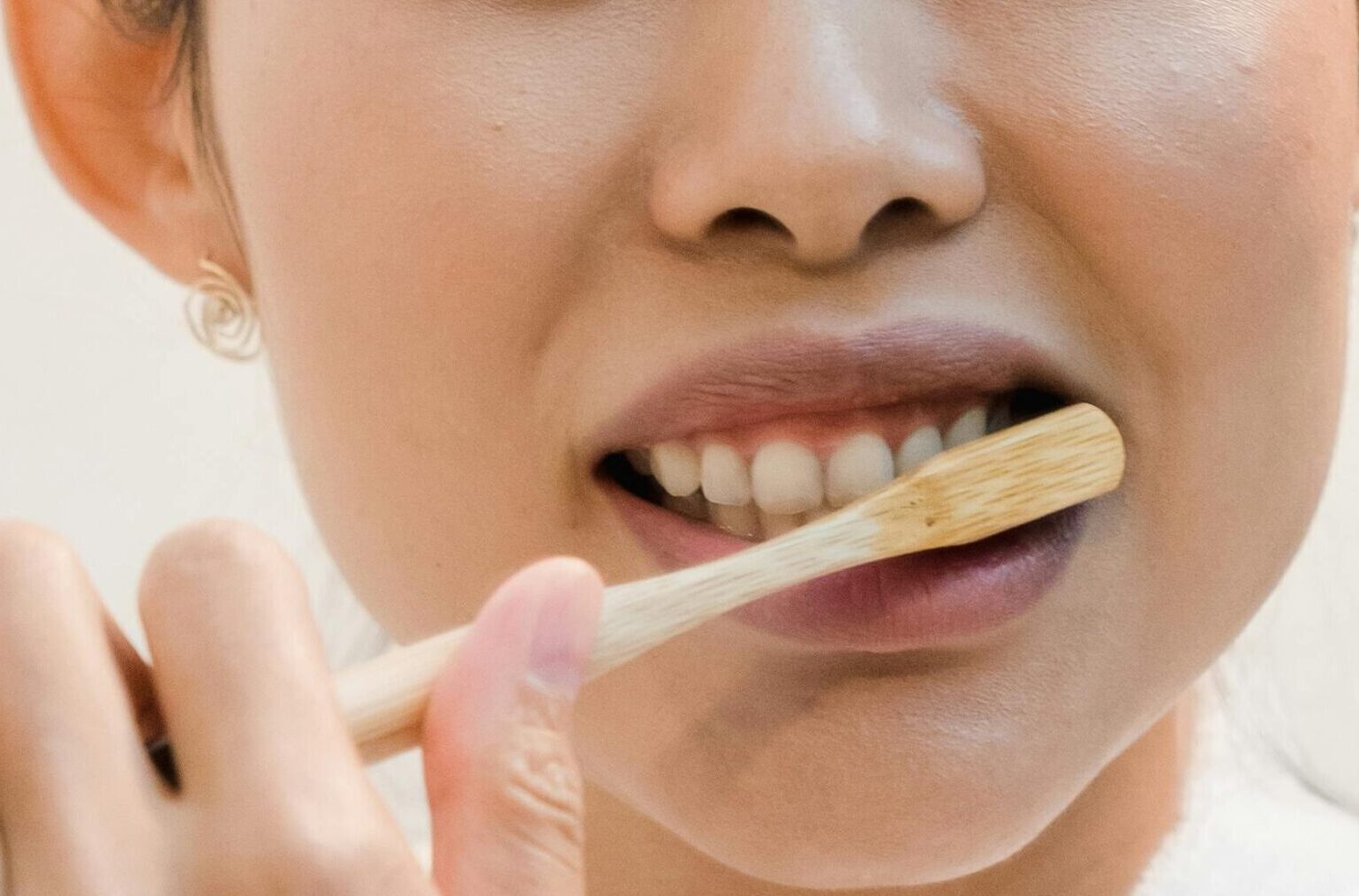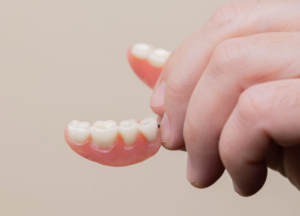Maintaining oral health is more than just a part of your daily routine—it’s a cornerstone of your overall well-being. A healthy mouth contributes to a healthy body, and at Paschke Dental Group, we believe that everyone deserves a smile they can be proud of. Dr. Hollie Paschke, with her extensive experience in dentistry, offers practical tips to help you maintain optimal oral health. Whether you’re a seasoned oral hygiene pro or someone looking to improve your dental care routine, these tips are tailored to help you achieve a healthier smile.
1. The Waterpik: A Valuable Tool, But Not a Replacement for Floss
Water flossers, like the Waterpik, have become increasingly popular for their ease of use and effectiveness in removing food particles from between teeth. While the Waterpik is a fantastic tool to incorporate into your oral hygiene routine, it’s essential to understand that it does not replace traditional flossing.
The Waterpik uses a stream of pulsating water to clean between your teeth and below the gumline, which is especially beneficial for individuals with braces, dental implants, or other dental work. However, traditional flossing is still necessary for removing the sticky plaque that adheres to the surfaces between your teeth.
Dr. Paschke’s Tip: Use the Waterpik as a supplementary tool to traditional flossing. First, floss your teeth using a high-quality dental floss, ensuring you’re removing plaque effectively. Follow up with the Waterpik to rinse away any remaining debris and to give your gums a gentle massage, promoting circulation and gum health.
2. Flossing: The Right Technique Matters
Flossing is one of the most effective ways to prevent gum disease and cavities. However, many people don’t floss correctly, which can limit its effectiveness. The key to proper flossing is not just moving the floss up and down between your teeth but also ensuring you’re cleaning along the curves of your gums, also known as the gingival papillae or “gummy triangles.”
Dr. Paschke’s Tip: When flossing, gently curve the floss around each tooth in a C-shape, making sure it hugs the side of the tooth and dips slightly below the gumline. This technique helps remove plaque and food particles that can lead to cavities and gum disease. Don’t forget to use a clean section of floss as you move from tooth to tooth to avoid transferring bacteria.
3. Brushing: Choosing the Right Brush and Technique
Brushing your teeth twice a day is the foundation of good oral hygiene, but not all toothbrushes or brushing techniques are created equal. Dr. Paschke recommends using a toothbrush with soft bristles, as hard or medium bristles can cause damage to your enamel and gums over time.
Dr. Paschke’s Tip: If you’re looking for the best option, consider an electric toothbrush with a pressure sensor. This feature helps you avoid brushing too hard, which can wear down your enamel and irritate your gums. When brushing, use gentle, circular motions rather than aggressive back-and-forth scrubbing. Make sure to brush for at least two minutes, paying special attention to all surfaces of your teeth, including the outer, inner, and chewing surfaces.
4. Mouthwash: The Importance of Alcohol-Free, Fluoride-Rich Formulas
Mouthwash is an excellent addition to your oral care routine, providing an extra layer of protection against cavities, bad breath, and gum disease. However, not all mouthwashes are created equal. Dr. Paschke advises choosing an alcohol-free mouthwash that contains fluoride.
Alcohol in mouthwash can cause dry mouth, which reduces saliva production. Saliva is essential for neutralizing acids in your mouth and helping to prevent tooth decay. Fluoride, on the other hand, strengthens your enamel and helps protect against cavities.
Dr. Paschke’s Tip: Opt for a mouthwash like ACT, which is both alcohol-free and fluoride-rich. Use it after brushing and flossing to rinse away any remaining particles and to ensure your teeth are protected throughout the day. Remember, mouthwash should be a complement to your oral hygiene routine, not a replacement for brushing and flossing.
5. Toothpaste: Choosing the Right One for Your Needs
Toothpaste is a critical component of your oral hygiene routine, but with so many options available, it can be challenging to know which one is right for you. Dr. Paschke recommends selecting a toothpaste based on your specific needs, whether it’s sensitivity, cavity prevention, or whitening.
For those with sensitive teeth, Sensodyne is an excellent choice. It contains ingredients that help to block the pain signals from your tooth’s surface to the nerve, providing relief from sensitivity caused by hot, cold, sweet, or acidic foods and drinks.
Dr. Paschke’s Tip: If you have a high cavity rate, consider using a prescription toothpaste like Clinpro, which is available at Paschke Dental Group. Clinpro contains a higher concentration of fluoride to help remineralize your enamel and reduce the risk of cavities. Always consult with your dentist before switching to a prescription toothpaste to ensure it’s the right choice for your oral health.
6. Diet and Oral Health: What You Eat Matters
Your diet plays a significant role in maintaining good oral health. Foods and beverages high in sugar can contribute to tooth decay, while those rich in calcium and phosphates can help strengthen your teeth.
Dr. Paschke’s Tip: Try to limit your intake of sugary snacks and drinks, especially those that are sticky or acidic. Instead, focus on consuming foods that are beneficial for your teeth, such as dairy products, leafy greens, and crunchy vegetables like carrots and apples. Drinking plenty of water throughout the day also helps to wash away food particles and acids, keeping your mouth clean and healthy.
7. Regular Dental Visits: The Key to Long-Term Oral Health
No matter how diligent you are with your at-home oral care routine, regular visits to the dentist are essential for maintaining optimal oral health. Professional cleanings and exams allow your dentist to catch potential issues early and provide you with personalized advice to improve your dental care routine.
Dr. Paschke’s Tip: Schedule a dental check-up and cleaning every six months. Regular visits not only keep your teeth clean but also allow your dentist to monitor your oral health and make any necessary adjustments to your routine. At Paschke Dental Group, we use advanced technology, including microscopes, to ensure your teeth and gums are thoroughly examined and treated.
8. Stress and Oral Health: The Mind-Body Connection
Stress can have a significant impact on your oral health, contributing to issues such as teeth grinding, gum disease, and even cavities. At Paschke Dental Group, we recognize the importance of addressing both the physical and emotional aspects of dental care.
Dr. Paschke’s Tip: If you’re experiencing stress, talk to your dentist about it. We can provide advice on managing stress-related oral health issues, such as recommending a nightguard if you grind your teeth or suggesting stress-reduction techniques that can help you maintain a healthy smile. Remember, your oral health is closely connected to your overall well-being, and taking care of both is essential for a healthy, happy life.
Conclusion: Your Partner in Oral Health
Maintaining good oral health is a lifelong commitment, and at Paschke Dental Group, we’re here to support you every step of the way. By incorporating these tips from Dr. Hollie Paschke into your daily routine, you can keep your teeth and gums healthy and enjoy the benefits of a beautiful smile.
Whether you’re using a Waterpik, flossing with the right technique, choosing the best toothpaste, or managing stress, each step you take contributes to your overall health. Don’t hesitate to reach out to Paschke Dental Group for personalized advice and care. Together, we can achieve and maintain the smile you deserve.








